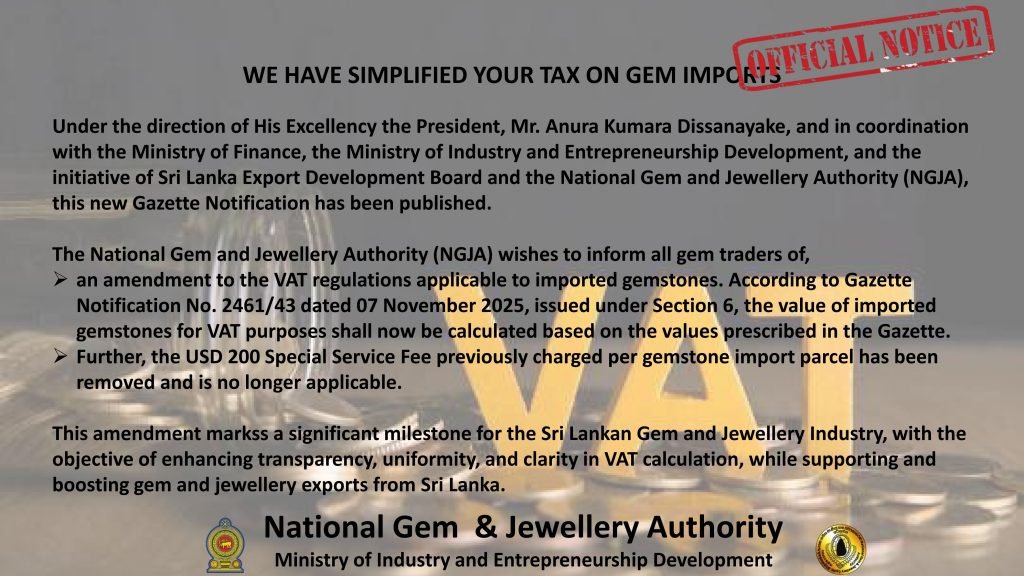World Famous Gemstone in Sri Lanka
Sri Lanka lies at the southern tip of India which is located at latitude of 6° – 10° N and longitude of 80° – 82° E. The major part of Sri Lanka is made up of Precambrian crystalline rocks except for a belt of sedimentary rocks along the north-west coast of the country. The Precambrian rocks which covers nearly 90% of Sri Lanka, have been classified into three major lithological units, which are Highland / Southwestern Complex, Vijayan Complex and Wanni Complex.
Sri Lanka is well known throughout the world for the large quantity and exquisite variety of its gemstones. These gemstones occur mainly in alluvial gravels found in valley bottoms into which flow tributary hillside streams which carry gem minerals released by weathering form the bed rock sources located at hilltops or hillsides. Apart from the sedimentary formation which carry gemstones some rocks too have been shown to contain gemstones particularly varieties of Corundum. There are also gemstones associated with pegmatite which constituted an important source.
During early times Sri Lanka was once quite fittingly referred to as “Rathna-dweepa” which connotes the meaning “The Island of Gemstones”. The name Rathna-dveepa is found in many chronicles. A Merchants Guide “Periplus of the Erythrean Sea” presumed to have been complied during the first century.
Today around 200 minerals have been classified as gemstones either due to their beauty, durability, rarity or a combination of some of these attribute which should be fulfilled make a mineral worthy of being classified as a gemstone. Of these gemstones, around 75 varieties have been mined or found in Sri Lanka. Although exploitation of Sri Lanka gemstone deposits has been going on for many centuries, its only in reason times that effort has been made to make study of the industry itself, the locations of possible gemstone deposits and most importantly.
